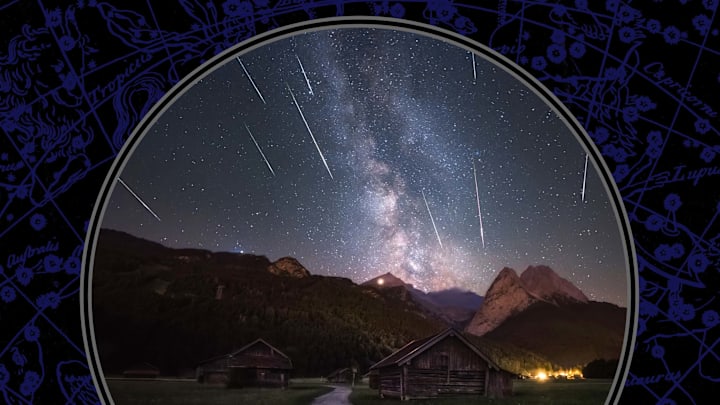Even if you’re a casual stargazer, you probably have heard of the Orionids. The October spectacle is one of the more consistent meteor showers of the year, and it’s easy to view no matter where in the world you are. If you plan on catching the event in 2023, here’s all the information you need.
What Is the Orionid Meteor Shower?
The Orionids are a byproduct of Halley’s Comet. As Earth passes through the comet’s tail, space rocks burn up in the planet’s atmosphere, creating a dazzling shooting star effect. While Halley’s Comet appears in the night sky only once every 74 to 76 years, the Orionids are much more frequent, occurring every year in October.
The shower gets its name from the constellation Orion, whose three-star “belt” is one of the most recognizable sidereal arrangements. When the meteors streak across the sky, they appear to originate from the constellation. On peak nights, the Orionids produce up to 20 shooting stars per hour.
How to See the Orionid Meteor Shower in 2023

In 2023, the Orionid meteor shower peaks the night of Saturday, October 21 and the early morning of Sunday, October 22. The pre-dawn hours on Sunday may be your best shot at seeing the spectacle. The moon will reach its First Quarter phase (half full) on the night of October 21-22 and set soon after midnight, so it likely won’t affect the visibility of shooting stars.
That night isn’t the only time to see the Orionids, though. The meteor shower is active from September 26 through November 22, 2023. Instead of trying to catch the meteors at their peak, look up a few nights before October 21, when the waxing crescent moon will appear dimmer. That should increase your chances of spotting at least a few shooting stars from Halley’s Comet.
A version of this story was published in 2021; it has been updated for 2023.
